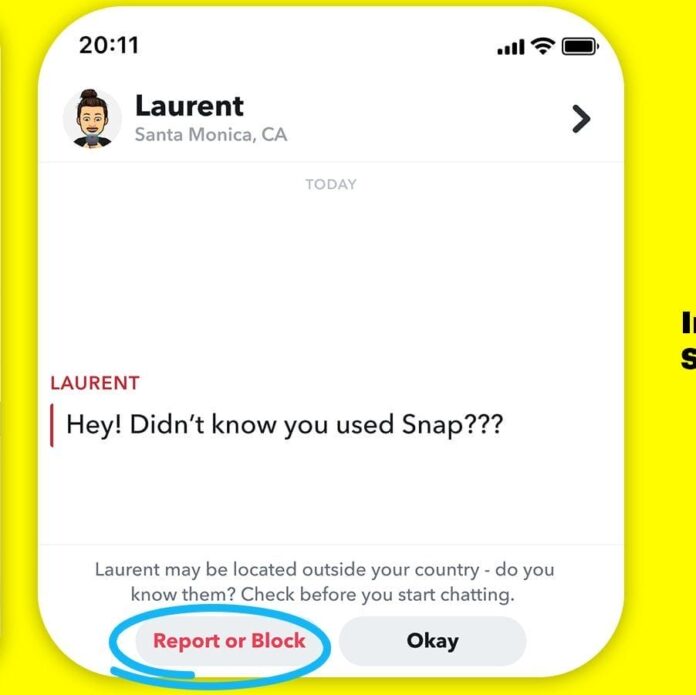By making it more difficult for strangers to get in touch with its underage users, Snapchat is taking significant efforts to improve their security. The move is intended to tackle the growing problem of sextortion, a form of fraud wherein younger clients are taken advantage of for both financial and sexual gain.
The platform unveiled a series of state-of-the-art security measures intended to protect children from possible online harm. These choices include:

Expanded alert pop-ups: When teenagers get messages from users who shouldn’t be their friends or contacts, they will be alerted. Additional cautions will be sent out if the communication originates from an individual who has been reported or blocked by other users, or if it originates from a location where the adolescent’s various contacts shouldn’t be. These are clues that suggest the individual in question may also be a con artist.
Restrictions on Pal Requests: As of right now, Snapchat will refuse friend requests from accounts that teenagers do not have mutual friends with, especially if those accounts are located in regions that have been linked to fraud.
Additionally, Snapchat may be improving its blocking features. Any new accounts made on the same system will even be automatically blocked when a user bans another account. This stops banned users from making new accounts in order to continue harassing others.
Additionally, Snapchat’s “Snap Map” feature will provide users more regular notifications regarding their location settings. Users have the option to change their location settings, remove their position from the map, and choose which friends may view their multifunctional location within the app. These upgrades build upon Snapchat’s current adolescent security features, including the “Household Heart,” which enables parents to monitor their 13 to 17-year-old children’s online activities, and tools for removing content that is too young for their children.
The corporate move comes in response to similar campaigns launched by many social media networks. Meta introduced anti-sextortion tools in April, along with notifications for users who communicated with known scammers. Leading figures in social media, including the CEOs of Meta and Snap, gave testimony earlier this year before a Senate subcommittee hearing on protecting children from online exploitation.
These new safety precautions are a critical step in protecting teens from predators online and maintaining users’ trust in social media sites.



